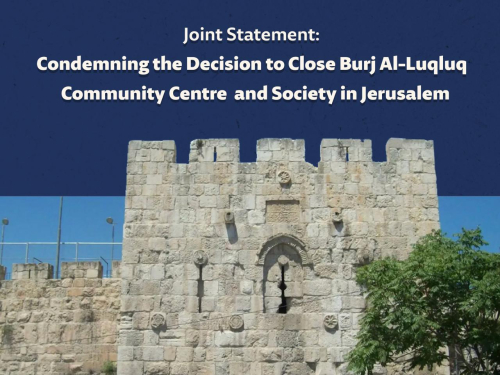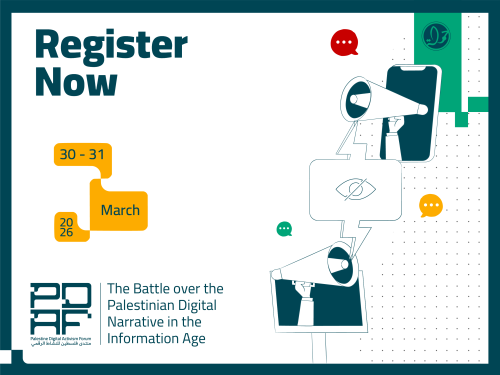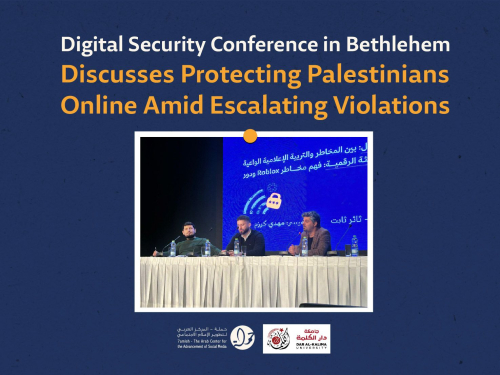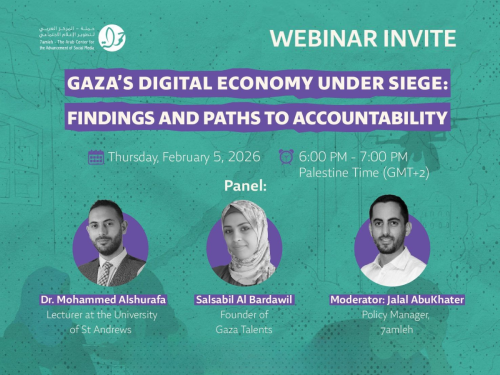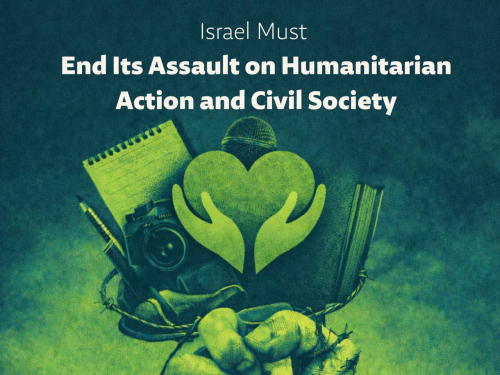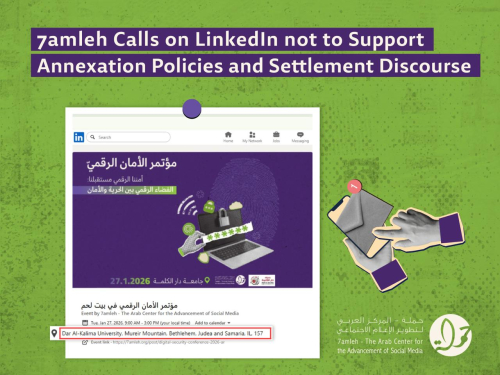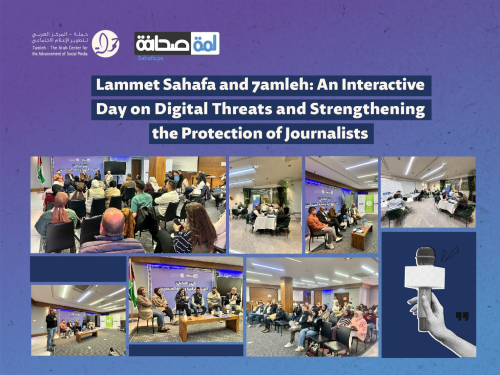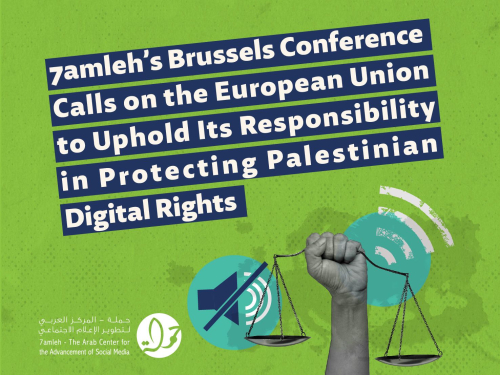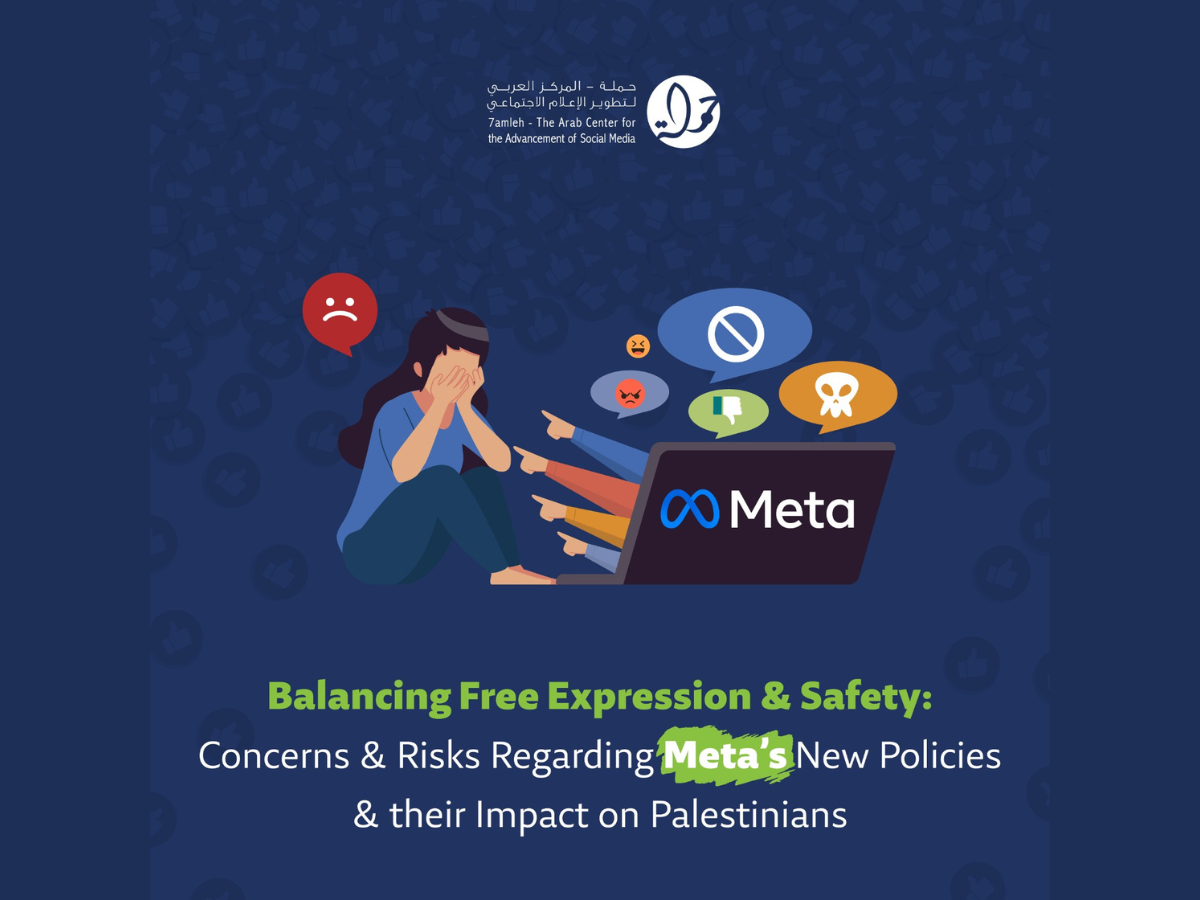
7amleh - The Arab Center for the Advancement of Social Media would like to express concern for the new content moderation policies Meta CEO Mark Zuckerberg announced this week. Zuckerberg explained that, among other changes, Meta will be replacing fact-checkers with a Community Notes feature modeled after Elon Musk’s X. Meta also announced plans to reduce active moderation for less severe violations, focusing instead on user-reported content while maintaining automated systems for tackling high-severity violations.
Promoting free speech is vital for all marginalized and oppressed communities throughout the world, like Palestinians, who remain the most targeted and censored category of users under Meta’s discriminatory policies. Content moderation should be designed with free speech in mind, but online platforms do have an obligation to ensure a safe environment for their users, and that includes taking down harmful and violent content. However, these policies need to be fair, equitable, and unbiased. Meta’s announcements do not seem to align with these principles for a number of reasons.
First, Zuckerberg repeatedly clarified that Meta would still be using automated systems to moderate the “legitimately bad stuff out there”, and referenced “terrorism” as one of those bad things. While it is important for Meta to remove violent content, which does support terrorist actions, the way Meta has historically defined and designated terrorism has disproportionately negatively impacted oppressed communities around the world. For example, Meta’s Dangerous Organizations and Individuals policy—which governs moderation of such content—has consistently overrepresented Arabs, Muslims, and Palestinians, going as far as misclassifying Palestinian humanitarian organizations, leading to disproportionate censorship. If Meta reduces content moderation overall but retains this biased policy, it risks further undermining freedom of expression for global majority communities rather than advancing it.
Second, explicitly citing X as the inspiration for Meta’s new Community Notes program, the entire strategy towards content moderation seems to be directly based on Elon Musk’s X. However, Musk’s approach has shown itself to be a failure in protecting marginalized voices and ensuring accountability. Since October of 2023, 7amleh documented over 11 million pieces of violent, anti-Palestinian posts on X in Hebrew alone. Furthermore, the pogrom in the Palestinian village of Huwara was organized and incited on X. Despite repeated warnings from 7amleh, X failed to act, demonstrating a clear link between unchecked online incitement and offline harm. If Zuckerberg's approach mirrors this model, Meta—with its vastly larger user base—risks becoming an even more dangerous platform for Palestinians, amplifying threats to their safety.
Third, relying more heavily on Community Notes and users flagging content for takedown will only serve well-resourced and powerful groups. By abdicating its responsibility to moderate content proactively, Meta risks catering to powerful groups like state actors, amplifying attacks on oppressed groups like Palestinians, and creating an even more hostile environment for Palestinian voices online.
Finally, Zuckerberg explicitly stated that “we will work with President Trump to push back against governments around the world that are targeting American companies”. This appears to target the EU's recent regulatory efforts like the GDPR, Digital Services Act, and AI Act. While these frameworks are not flawless, they mark a crucial step in holding Big Tech accountable and balancing the need for a safe and equitable internet with protecting the right to freedom of expression. Effective regulation is essential to safeguard digital rights, particularly for marginalized communities who are disproportionately impacted by unchecked online harms. Meta’s resistance to such regulation signals a troubling disregard for accountability and global human rights frameworks.
While free expression is vital and must be upheld, Meta’s updates must prioritise protecting Palestinians as they are the most negatively affected group by its discriminatory policies. Without clear safeguards against incitement and systematic bias, these changes could usher in a more dangerous online environment for Palestinians, making it harder for them to exercise their rights to free speech and access to information.
Related Articles
Subscribe to Our Email Alerts
And stay updated with our latest activities, news, and publications!

